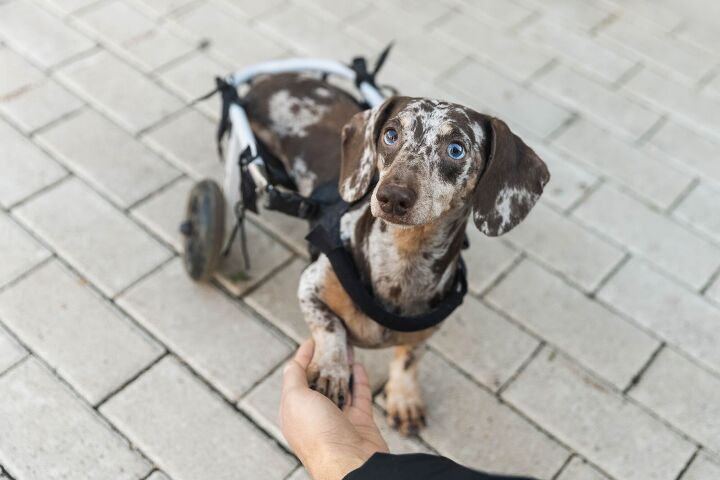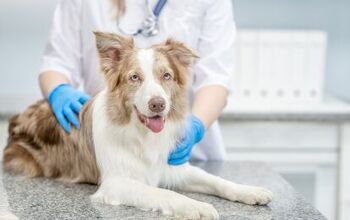New Tool Detects and Predicts Dog Mobility Issues

Researchers at the University of Liverpool and experts at Dogs Trust have joined forces to create a unique new tool for detecting and predicting dog mobility issues.
These veterinary experts have developed the GenPup-M questionnaire. This survey asks dog owners a series of questions to about their dog's mobility.
The GenPup-M questionnaire is designed in a way that can help owners determine whether their dog might be experiencing mobility problems, even mild ones. Mobility-related problems are the third most commonly diagnosed disease in dogs. It’s estimated that 200,000 dogs are affected by musculoskeletal disease annually.
According to some estimates, 20% of dogs have mobility issues before one year old, but most aren’t diagnosed until they are eight to 13 years old.
Current mobility questionnaires are developed for dogs already diagnosed with mobility problems and track their quality of life. This means that many dogs spend the better part of their lives living with a painful condition that negatively impacts their overall health and well-being.
A recent study, published in PLOS ONE confirms the validity of the GenPup-M questionnaire. The study involved 62 dogs - 31 with mobility issues and 31 without mobility issues.
Scientists obtained the dogs’ clinical history from the owners, and all dogs received an orthopedic exam at the beginning of the study. Next, owners were asked to complete the GenPup-M questionnaire along with a previously validated mobility questionnaire.
To determine the survey’s validity and its ability to identify mobility issues in dogs, scientists compared GenPup-M responses with the results of other expert tests, including advanced gait analysis.
“Impaired mobility can affect a dog’s ability to engage in daily activities and interactions, move or exercise freely. If an animal is unwilling to or cannot play, exercise, or express normal behavior, this can impact its quality of life,” said Natasha Clark, veterinary surgeon and researcher at the Department of Musculoskeletal & Aging Science at the University of Liverpool.
According to Clark, when done over time at regular checkups, the GenPup-M questionnaire can identify subtle changes in a dog’s mobility without the use of expensive and time-consuming gait analysis. This new tool can help vets diagnose and slow the development of mobility problems in dogs.
“Our research doesn’t stop here and we will continue to research and develop GenPup-M to refine it as an even more effective tool for vets and dog caregivers,” added Clark.
The Deputy Head of Research, Welfare Projects & Grants at Dogs Trust, Dr Jane Murray, said, “We are delighted to work collaboratively with the University of Liverpool on this study which serves to improve the well-being of dogs, as no dog is immune to mobility issues. Generation Pup is a ground-breaking study of the health, welfare, and behavior of our dogs and we hope this research helps more owners detect early signs of mobility issues, leading to veterinary and management interventions that can improve the welfare of the affected dogs.”
Join the PetGuide community. Get the latest pet news and product recommendations by subscribing to our newsletter here.

Nevena is a freelance writer and a proud mom of Teo, a 17-year-old poodle, and Bob, a rescued grey tabby cat. Since childhood, she had a habit of picking up strays and bringing them home (luckily, her parents didn't know how to say NO). When she's not writing for her fellow pet parents, Nevena can be found watching Teo sleep. To her defense, that's not as creepy as it sounds!
More by Nevena Nacic























